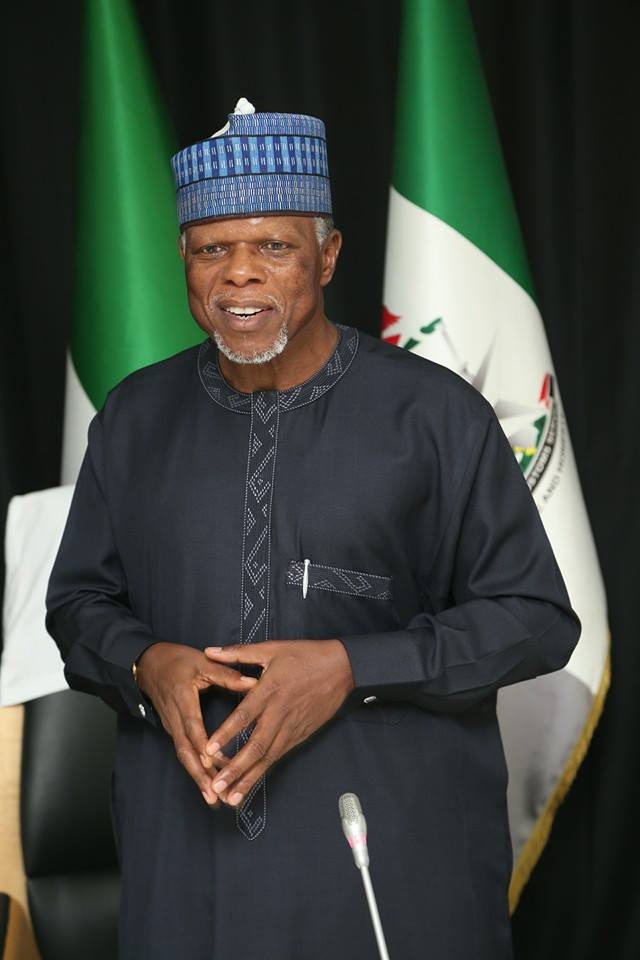The Comptroller-General of Customs, Col. Hameed Ali (Rtd.) has explained that there was never a ban on the importation of rice into the country as widely believed in many quarters.
Ali who made this clarification in Lagos on Friday while fielding questions from Journalists in a press briefing to round up his weeklong tour of customs formations in Lagos further explained that customs did not in any lift the ban on rice as being speculated in some quarters.
According to him, customs only lifted a restriction it placed on its own accord on the payment of duty on rice at the border stations so as to reduce the incidences of rice smuggling into the country which in most cases lead to revenues loss to Nigeria and in turn enrich the economy of her neighbouring countries.
He went further to state that the decision to import rice through the borders stations was solely that of the customs administration and not any policy direction from either the Ministry of Finance or from the President adding that customs did require any executive approval before reverting its decision.
“I am glad you used the word correctly because my lawmakers don’t seem to use the word correctly, they said we have lifted the ban on rice. There has never been ban on importation of rice, you should know that. It is the Nigeria Customs in 2011 that decided on its own in-house to restrict the payment of duty on rice at the borders and said we are restricting the payment of duty on rice to the ports so as to reduce the quantum of rice, so as to make sure that NAFDAC who are to certify the quality of those things will be available to look at the good you are clearing and so many factors were taken into consideration.
“Today, we have NAFDAC in all the commands, they are with us. Secondly, we discovered that because of the disparity in the tariffs on duty payment rice, Nigerians have resorted to taking their rice to Benin Republic and drive it to Niger and smuggle it into Nigeria, so, we were now left with what do we do. We cannot man the whole borders and block the whole routes and here we are losing revenues and some others have said we have farmers who are farming and millers who are milling.
“So, what we did was to remove the restriction we imposed ourselves. It is not a policy by government, it was customs that decided to impose the restriction and we looked at the exigencies on ground and felt this time around, we should lift that restriction in order to allow more people bring in those rice, they pay duty and they pay levy and people will get the rice because the price of rice was beginning to rise.
“So, this is what happened. There was no policy banning importation of rice, so, we did not unilaterally lift the ban, it was never banned. It was a restriction we ourselves made and today we feel that restriction is no longer necessary”, he said.
He argued that those who claimed to be millers were not really millers but traders who do nothing that to use their relationship with the government to bring in polished rice and sell them to Nigerians at exorbitant prices.
According to him,” We discovered that most of these people (Millers), they don’t have mills but what they do is that they ask government to reduce tariff for them and they get it, they import polished rice and sell them and here we are, we have rice at the border, I assure you, the rice that are at the border is not going to impact in anyway any of our agricultural policy because we have said that after all rice is seen everywhere and the cost of rice was rising because we decided to enforce the law and block as much as we can”.
He however noted that rice was under the 41 items that the Central Bank of Nigeria restricted access to FOREX adding that the rice importers would now have to source for their FOREX through the alternative market as against the normal through form M which would in turn make it difficult to import as much as they would have done through the official window.
It will be recalled that the National Assembly had in their sitting last week summoned the Comptroller-General of Customs to appear before it this week to explain to Nigerians the rationale behind the lifting of the restriction of importation of rice through the border stations.
Send your news, press releases/articles to info@primetimereporters.com. Also, follow us on Twitter @reportersinfo and on Facebook at facebook.com/primetimereporters or call the editor on 07030661526.

